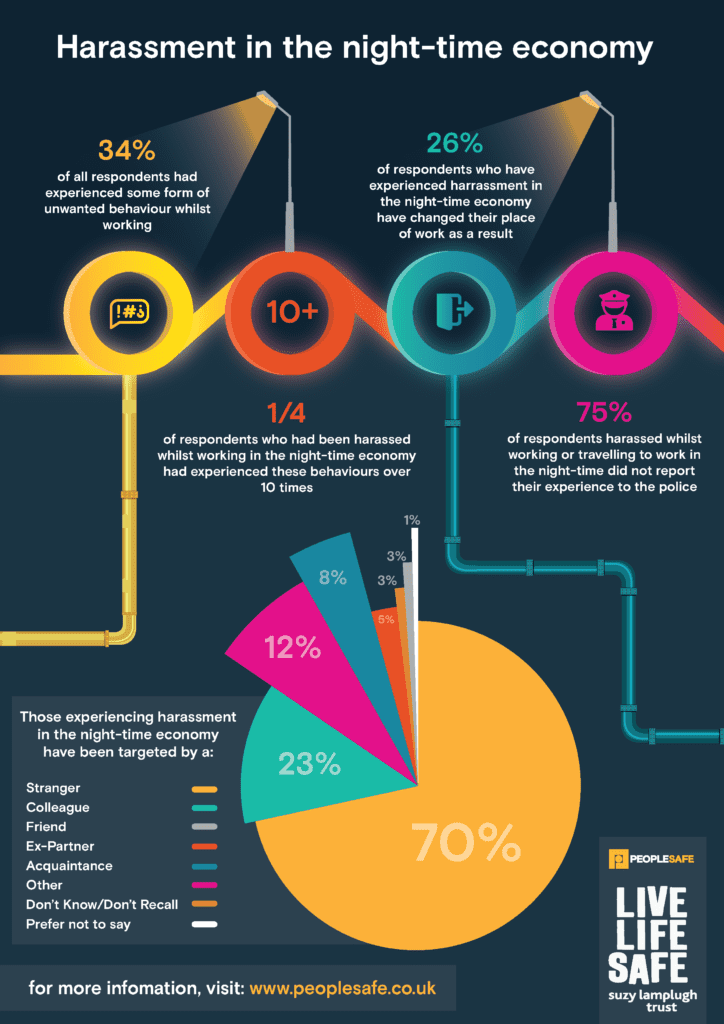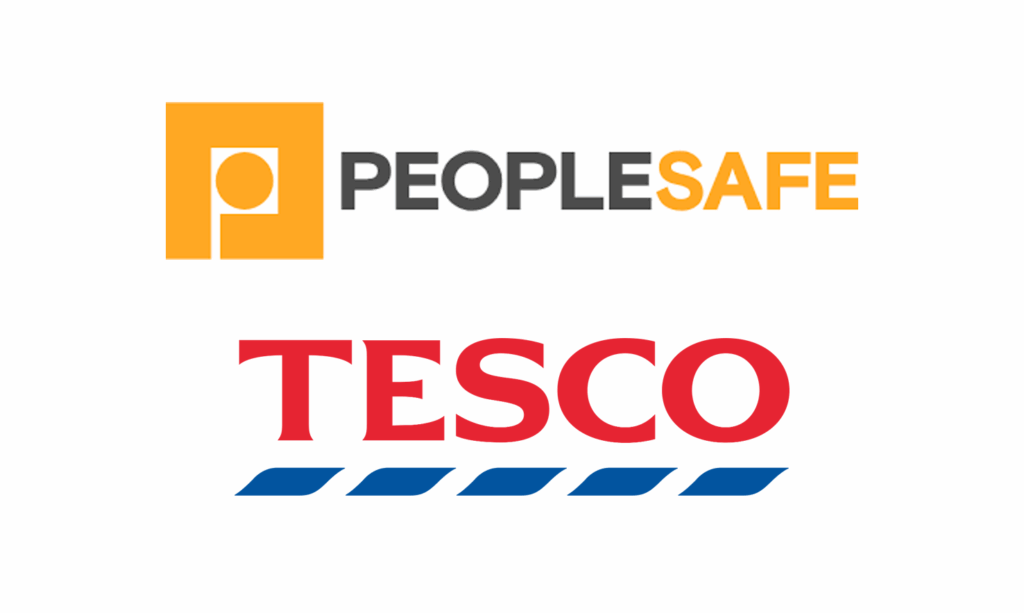National Personal Safety Day 2022
Suzy Lamplugh Trust report reveals that 44% of female respondents had experienced harassment whilst working in the night-time economy.
Everyone has the right to be safe at work. Yet a recent YouGov survey conducted by the Suzy Lamplugh Trust and supported by Peoplesafe for National Personal Safety Day found high levels of violent, aggressive, sexual and unwanted behaviours perpetrated against employees working or on their way to work in the night-time economy.
Our findings show that women are more likely than men to have experienced harassment within or on their way to their workplace, with 44% of women having experienced harassment compared with 26% of men. In the majority of all reported cases of harassment (83%), the perpetrator was a man. These statistics highlight the shocking prevalence of violence against women and girls within the workplace.
No one should be a victim of violence, aggression, and harassment in the workplace. However, of the 1,768 night-time economy workers surveyed, a shocking one third (34%) had experienced some form of unwanted behaviour whilst working, or on their way to work, and 15% of respondents had experienced sexual harassment (28% of women).
Of respondents who had been harassed, 60% had never reported their experiences to their employer, commonly citing a lack of faith that action would be taken. Likewise, three quarters of respondents who had been harassed whilst working or travelling to work in the night-time economy had not reported their experiences to the police.
These findings speak to the need for employers to take all reasonable steps to combat harassment within the workplace and for urgent legislative change to criminalise and prevent such unwanted behaviours both in the workplace and in public spaces.
Download the infographic
Based on the findings of this report, the Suzy Lamplugh Trust is making the following policy recommendations:
- For the government to support the Worker Protection (Amendment of Equality Act 2010) Bill that would legislate for a preventative duty and require employers to take all reasonable steps to stop workplace sexual harassment while also protecting women from sexual harassment from third parties.
- The government should work with specialist services to ensure there is a national framework on tackling harassment that can be implemented within businesses. This framework would build on best practice from initiatives such as the Women’s Night Safety Charter21, including rolling out bystander training22.
- Legislative change is urgently needed to ensure individuals’ right to safety within public spaces. It is imperative that the Government supports proposals to make public sexual harassment a standalone offence.
- The Government should urgently ring-fence funding for women and girls’ safety on public transport across the UK, and continue funding for safer public spaces such as through the Safer Streets Fund. Transport services must provide regular, safe routes home from work, such as 24-hour transport systems.
- The Government and employers should collect and publish data on the prevalence of workplace harassment, including sexual harassment, and the impact on those who experience it to support more victims.
- For employers to publish their personal safety policy. If employers do not have any policy in place, such as the one advocated for through Suzy’s Charter, they should consult with specialist organisations such as the Suzy Lamplugh Trust to introduce one.
Suky Bhaker, CEO of Suzy Lamplugh Trust, says:
MP Wera Hobhouse says:
My Private Members’ Bill recently passed its Second Reading in the House. It aims to prevent sexual harassment in the workplace by forcing employers to ensure that their workplaces are safe. This Bill, alongside the work of organisations like the Suzy Lamplugh Trust, I hope will start the culture shift we desperately need”




